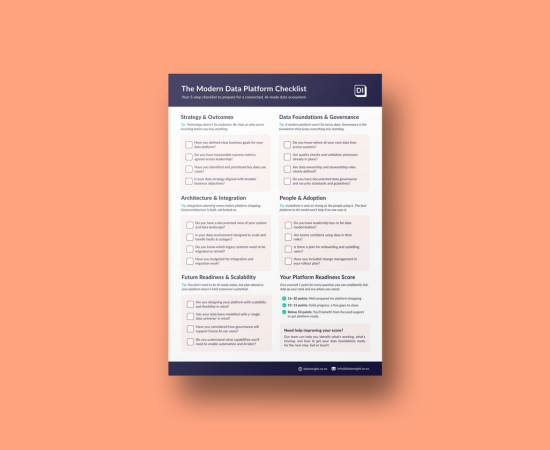The potential contribution to the global economy from AI could be $15.7 trillion in 2030*.
Artificial Intelligence, or AI as we know it, is around us every day. When you unlock your phone using facial recognition, when you search for something on Google, when Netflix suggests new shows for you to watch, and even when you receive mail – all these things are underpinned by AI.
The concept of AI has been around since the 1950s. British polymath Alan Turing wrote a paper suggesting that if humans can use information and reason to solve problems and make decisions then surely machines could do the same. Back then computers lacked the intelligence and processing power, and were incredibly expensive, so it wasn’t until some years later that AI became feasible.
So, what exactly is AI?
If you Google AI, you’ll find a myriad of definitions ranging from robots that can mimic human thought and feelings to any process using machines to perform calculations.
Simply put, AI is intelligence demonstrated by machines that mimic human behaviour. It is intended to enhance the speed, precision and effectiveness of human efforts.
At Data Insight, we have a wide definition for AI: any process with automated decisioning. That is, any decision making that does not rely on a human, which also includes machine learning (machine learning is a branch of AI that focuses on the use of data and algorithms to imitate the way humans learn, gradually improving its accuracy).
Why do we need it?
Well, it all comes back to data. Data is central to just about everything we do – it enhances customer experiences, optimises processes, informs business decisions... you name it, data can support just about anything we want it to. However, the amount of data generated these days by both machines and humans far exceeds humans’ ability to process, interpret and utilise it effectively. Our brains simply cannot absorb data at the scale it is now being produced and captured. And if we don’t utilise our data effectively, it simply becomes a cost instead of a strategic resource. But machines can, with infinitely more capacity to process large amounts of data and recognise patterns in the data.
As the proliferation of data being captured continues to grow, the need for automation in processes and systems increases exponentially. And it makes sense – why utilise manpower for routine or repetitive tasks when a machine can be used. A machine will follow instructions perfectly, works at a consistent pace and won’t tire. Furthermore, with machine learning the AI can be trained to improve so that the process is in a constant state of optimisation.
And it’s not just routine tasks that AI can support. You only need to look at how Amazon Go has changed the grocery landscape with its assimilation of machine learning, algorithms, computer vision, sensors and AI that enables shoppers to enjoy a completely unique, cashier-less experience. Indeed, AI is adding significant value in a range of different industries:
- Banking & finance: Fraud detection, fast and accurate credit scoring, automated decisioning and data entry
- Manufacturing: Forecasting expected demand, process automation, precision cutting, analysis of IoT data.
- Health: Diagnostics, surgical patient monitoring, personalised medicine and test result readings, drug research and safety.
- Retail: Virtual shopping with personalised recommendations, store layout and stock management, virtual customer assistance responding to enquiries outside of human interaction.
75% of business executives fear going out of business within five years if they don’t utilise AI*
We know that AI is virtually limitless in its application and that it has the ability to enhance our everyday lives. For businesses, in addition to providing significant benefits to the delivery of improved customer experiences, it also offers many gains for internal operations and the two things all businesses strive to optimise – time and budget.
Here are some of the ways AI can support businesses:
- Utilisation of complex data: Problems that deal with unstructured, complex data like text, photos, video and speech are challenging to solve using traditional analytics alone. AI offers tools that allow finding true business insights from these types of information, which can be utilised to inform decisions around marketing campaigns, product development, budget and resource allocation.
- Automated insights: AI can undertake ongoing analytical work autonomously and at scale. For example, looking at groups of data to compare certain metrics and then taking action or highlighting insights to employees, or searching a large breadth of data to find new perspectives on business challenges. This enables organisations to utilise much larger sources of unstructured data and greatly widen the scope of their analytics efforts.
- Always-on rapid decisioning: While Data Analysts can be highly skilled at what they do, they aren’t available 24/7. AI is always available and can deliver decisions quickly. For example: a room full of banking experts can easily determine if a transaction looks fraudulent, but they may not be available at 3am on a Saturday when a transaction is put through. AI is always ready to run an analysis and perform the right action at the right time – even blocking fraudulent transactions in real time at the point-of-sale.
- Operational excellence: AI is often best when used as the next step for a problem you've already solved. The sophistication of AI tools coupled with your own extensive business experience will allow you to provide even better solutions because of your strong understanding of the problem and the data you have.
How Data Insight helped a leading insurer deepen its relationship with existing customers
A leading insurer wanted to identify which of its customers could be offered premium policies, which would not only provide increased revenue for the business, but also a deeper level of customer engagement. They came to Di to create a ranking model that would identify the customers most likely to have a need for tailored, premium products.
The focus for the Di team was to create an AI model that could be easily used by the client’s in-house team. Through a process of analysing and comparing six different types of model, we recommended a model that was accurate, but also interpretable.
We then clarified which data could be utilised to best capture the required customer behaviours and developed the model with automated monthly reporting to show where the key variables for its decisions were changing. A performance dashboard was developed to allow easy monitoring and reporting for stakeholders.
The top three most significant challenges companies face when considering the implementation of AI are staff skills (56%), the fear of the unknown (42%), and finding a starting point (26%).*
Getting started with AI
AI can be an incredibly worthwhile and significant investment for an organisation, delivering tangible benefits across the entire business. The process to getting started depends on where you are at in your data journey, the level of maturity and robustness in your data capture and storage, and the intended purpose of the AI.
If you are looking to unlock the power of Artificial Intelligence and discover how it can revolutionise every department within your organisation download our Understanding AI Industry paper.
*Article stats: https://www.semrush.com/blog/artificial-intelligence-stats/








.png)